Global Health
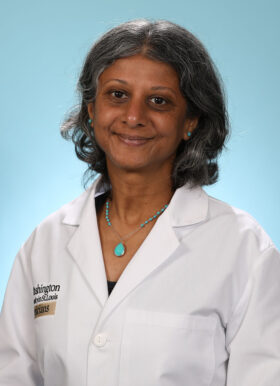
Shashwatee Bagchi, MD, MS, MSc
Associate Professor of Medicine
- Email: bagchi@wustl.edu
Dr. Bagchi specializes in clinical and translational research with a focus on cardiometabolic and vascular complications of infections.
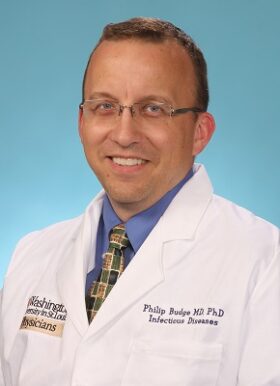
Philip J. Budge, MD, PhD
Associate Professor of Medicine
- Phone: 314-747-5198
- Fax: 314-454-5392
- Email: pbudge@wustl.edu
Dr. Budge specializes in translational, public health-related research, with a special focus on filarial infections—insect-borne threadlike parasitic worms that cause lymphatic filariasis (elephantiasis), onchocerciasis (river blindness), and loiasis (African eye worm).
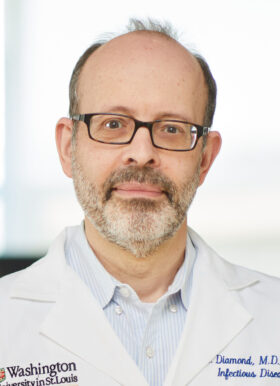
Michael S. Diamond, MD, PhD
The Herbert S. Gasser Professor, Departments of Medicine, Molecular Microbiology, Pathology & Immunology
- Phone: 314-362-2842
- Fax: 314-362-9230
- Email: diamond@wusm.wustl.edu
Michael Diamond, MD, PhD is the leader of a basic and translational research laboratory studying the interface between viral pathogenesis and host immunity. His laboratory focuses on emerging RNA viruses including flaviviruses, alphaviruses, and coronaviruses.

Peter U. Fischer, PhD
Professor of Medicine
- Phone: 314-454-7876
- Fax: 314-454-5293
- Email: pufische@wustl.edu
Dr. Fischer specializes in basic and translational sciences to support the control and elimination of neglected tropical diseases, with a special focus on helminths.
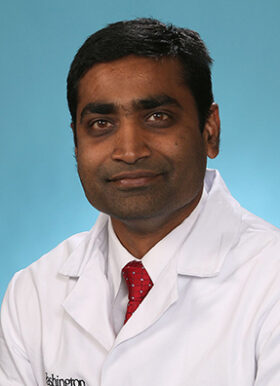
Sumanth Gandra, MD, MPH
Associate Professor of Medicine
- Phone: 314-454-8276
- Fax: 314-454-5392
- Email: gandras@wustl.edu
Dr. Gandra specializes in clinical and public health research with a special focus on antibiotic use, antibiotic resistance surveillance and healthcare epidemiology in resource limited settings especially in India.
Languages: English,Telugu, Hindi
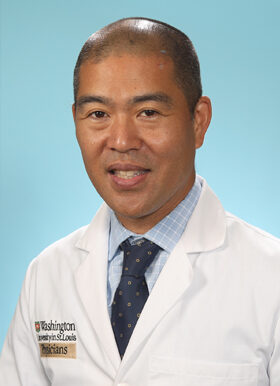
Elvin H. Geng, MD, MPH
Professor of Medicine
- Email: elvin.geng@wustl.edu
Dr. Geng conducts research to advance the use of evidence-based interventions in the public health response to HIV and COVID-19 as well as increasingly for non-communicable diseases as well.

Juliet Iwelunmor, PhD
Professor of Medicine
- Email: ijuliet@wustl.edu
A passionate advocate for health equity and sustainability, Dr. Iwelunmor is widely regarded for understanding how to make evidence-based interventions last, reshaping the focus on community engagement using participatory research, improving the dissemination of health information, while amplifying the voices of young people in health interventions.
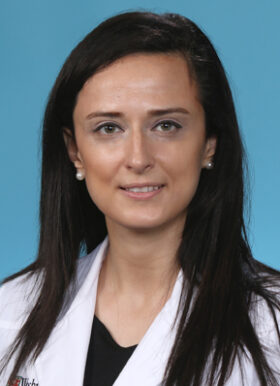
Caline Mattar, MD
Associate Professor of Medicine
- Phone: 314-454-8354
- Fax: 314-454-5392
- Email: cmattar@wustl.edu
Dr. Mattar’s interest is in healthcare epidemiology and global health, more specifically in infection prevention in resource limited settings. Additionally, her current work involves bloodtsream and endovascular infections.
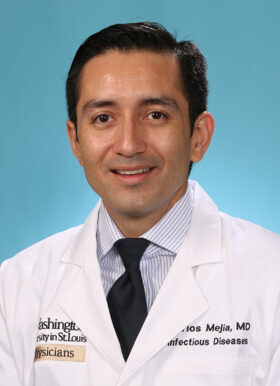
Carlos Mejia, MD
Assistant Professor of Medicine
- Phone: 314-454-8215
- Email: carlosmejia@wustl.edu
Dr. Mejia-Chew specializes in mycobacterial infections, particularly nontuberculous mycobacterial (NTM) infections.
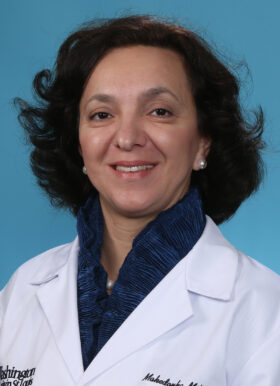
Makedonka Mitreva, PhD
The Robert E. and Louise F. Dunn Professor of Medical Sciences, Departments of Medicine and Genetics
- Phone: 314-286-2005
- Fax: 314-286-1810
- Email: mmitreva@wustl.edu
Dr. Mitreva is an internationally acclaimed scientist who leads a basic and translational science research program focused on neglected tropical diseases. Her long-term commitment is to unravel the cellular and molecular complexities of helminths (parasitic nematodes and platyhelminths), leading to identification of drug targets and facilitating genome-informed helminth surveillance.
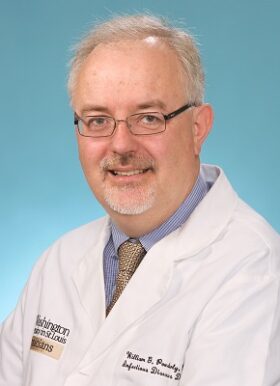
William G. Powderly, MD
J. William Campbell Professor of Medicine & Co-director, Infectious Diseases Division
- Phone: 314-454-8287
- Fax: 314-454-8294
- Email: wpowderly@wustl.edu
Dr. Powderly has been actively involved in HIV-related clinical research for over thirty years with specific interests in opportunistic infections, metabolic complications and long-term outcomes of antiretroviral therapy.
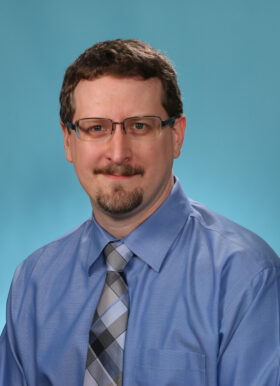
Bruce A. Rosa, PhD
Assistant Professor of Medicine
- Phone: 3142861897
- Email: barosa@wustl.edu
Dr. Rosa’s experience in the statistical analysis of complex datasets (utilizing multiple types of evidence spanning treatments or species) has led to the identification differentially expressed genes, drug targets and pathways of interest for experimental verification.
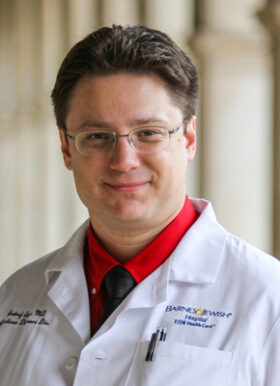
Andrej Spec, MD, MSCI
Associate Professor of Medicine
- Phone: 314-454-8354
- Fax: 314-454-5392
- Email: aspec@wustl.edu
Dr. Spec‘s research is in fungal infections, particularly in immunocompromised patients, including those with transplants. His research focuses on Cryptococcus, Histoplasma, Candida, Aspergillus and other invasive molds. Dr. Spec also runs the division’s clinic focusing on invasive fungal infections, where he takes care of both immunocompromised and immunocompetent patients with fungal infections, which he considers the best and most rewarding part of his job.
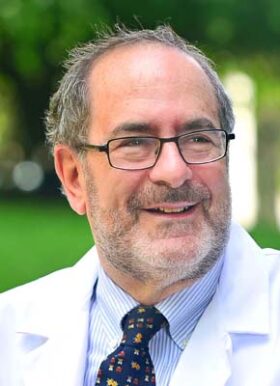
Gary J. Weil, MD
Professor, Departments of Medicine and Molecular Microbiology
- Phone: 314-747-5198
- Fax: 314-454-5293
- Email: gweil@wustl.edu
Dr. Weil’s research group conducts research on filarial nematode parasites that cause important tropical diseases such as elephantiasis and river blindness. This includes basic research on parasite biology and translational research to develop improved diagnostic tests and treatments.